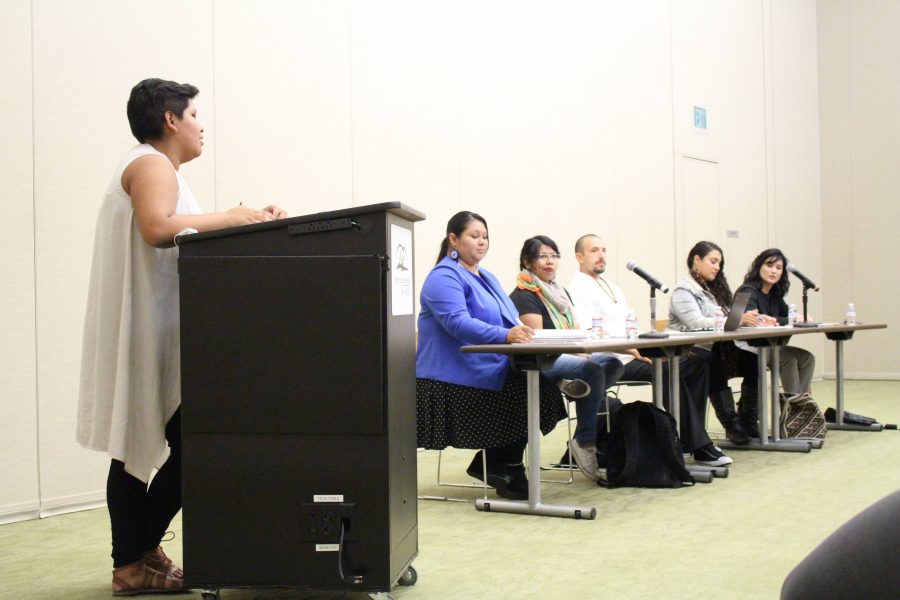Chicano/a Studies: Why is it important?
September 28, 2016
Sept. 20 the M.E.Ch.A organization at CSUSM held a panel that promotes Chicano/a education and history, in the USU Ballroom to discuss Chicano/a studies becoming a part of the university curriculum.
“This event was held by faculty and students because MEChA [(Movimiento Estudiantil Chicano de Aztlan)] recognizes Chicano/a studies as an important topic that the University needs in order for students to gain knowledge and understanding of the study,” said Flor Alvarez, founder and director of Homie Up, a student-led initiative organization that provides educational courses to students in prison.
MEChA sent out a form to the Chancellor’s office with hopes that CSUSM students will have the opportunity to choose Chicano/a studies as a major or minor in the future. MEChA is doing everything possible in order to gain all as much support as possible.
Alvarez was accompanied by four other speakers, including graduate student educator Daisy Resendiz, CSUSM Human Development professor Rafael Hernandez, Chicano/a Studies Palomar professor Angelica Yanez and Michelle Holling, Department Chair of Communications and member of the Chicano/a studies committee.
Professor Yanez first became involved in the field of Chicano/a Studies in high school, where she was involved with the MEChA organization and began to gain knowledge of what Chicano/a Studies is all about.
“Having this information [about Chicano/a studies] as a teenager was what really began to politicize me. I was able to see the social injustices, and because of this, no matter where I would go or what I would do, I knew I would always be a MECHISTA,” said Yanez.
Hernandez and Yanez believe that having Chicano/a Studies as a major will bring benefits to the university and to the community.
“We can form alliances to work together to social justice,” said Hernandez, “We can celebrate diversity within our culture, race, gender, immigrant status and sexual orientation…”
“[Chicano/a Studies] rediscovers the problems of it being institutionalized because it has lost its root. Chicano/a studies just became an academic study, and people don’t understand the community because they try and define it in one word within universities,” said Yanez.
Due to the Latin@ Center taking almost ten years to become available to students, Resendiz wants to convince students to view it as an example standing firm in your beliefs, and that anything can be achieved with perseverance.
“If you want something to happen within the community, students need to stick together and actively push for these needs. With this mentality, it’s possible that anything can happen,” said Resendiz.
Hernandez said that students can help the cause by spreading the word and engaging in dialogue and conversation about Chicano/a studies with others.
“Look into MEChA and Chicano/a studies as a philosophy. When these topics come up and you’re armed with a little more knowledge and with a little more preparation …we will then be able to show that this is for a greater purpose and that we won’t give up,” said Hernandez.
Students can view more information about MEChA and Chicano/a studies on CSUSM’s Ethnic Studies and Student Organization web pages.







